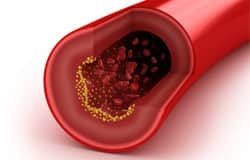In the American Heart Association journal Stroke, researchers from Brigham and Women's Hospital and Harvard School of Public Health report an association between lower levels of the hormone dehydroepiandrosterone sulfate (DHEAS) and a greater risk of stroke in older women. Their findings appeared online in the journal on May 23, 2013.
The study included women who had no history of stroke upon enrollment in the Nurses' Health Study in 1976. Stored blood samples obtained between 1989 and 1990 were analyzed for DHEA sulfate levels. Four hundred sixty-one participants in whom stroke had occurred over follow-up were matched for age, race, menopausal status and other factors with an equal number of control subjects.
Women who experienced a stroke were likelier to be diabetic and have a history of high blood pressure in comparison with the control group. Among women whose DHEAS levels were among the lowest 25% of participants in the current study, the adjusted risk of experiencing an ischemic stroke was 33% higher than that of women whose levels were among the top 25%. Further adjustment of the analysis increased the percentage to 41%.
Authors Kathryn M. Rexrode MD, MPH and colleagues note that DHEA could influence the development of cardiovascular disease and stroke through mechanisms that include inhibition of the migration and proliferation of vascular wall cells, and stimulation of vascular smooth muscle cell apoptosis, which reduces vascular remodeling subsequent to injury.
"To our knowledge, this is the first report to evaluate DHEAS levels and risk of ischemic stroke," the authors announce. "In this cohort of older women, these results suggest evidence for an inverse association between DHEAS and risk of ischemic stroke, where lower levels of DHEAS were associated with an increased risk of ischemic stroke."
"Additional research is warranted to confirm these associations in other populations," they conclude.









